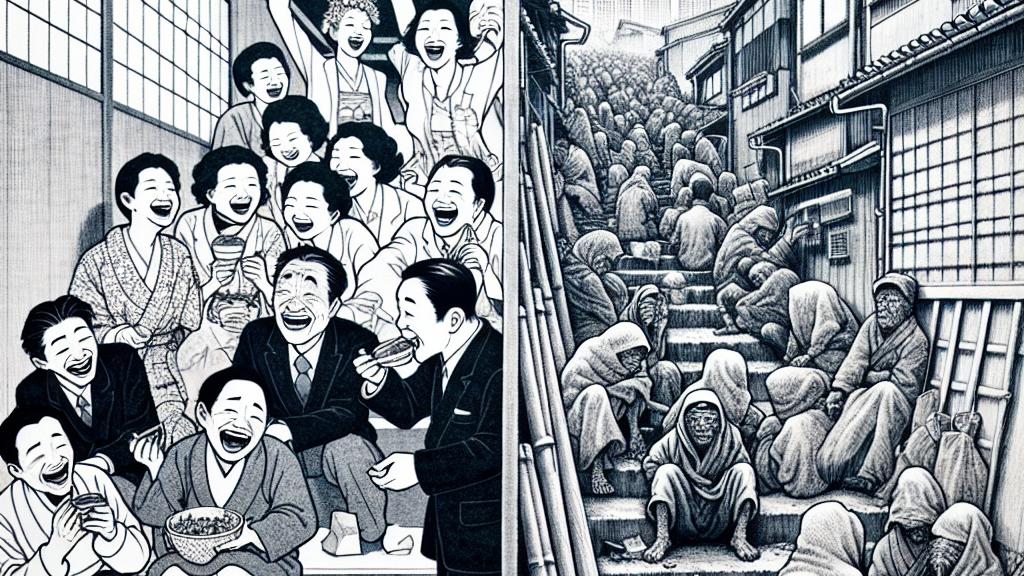Understanding the Difference Between Poverty and Wealth in Modern Japan
Overview
- A comprehensive exploration of how the definition of 'poverty' has evolved in Japan.
- A clear distinction between the light-hearted notion of 'poverty' and the serious situation of 'deprivation.'
- Insights into how the youth's perception of wealth reflects broader societal inequalities.

The Evolution of Poverty in Japan
In present-day Japan, particularly in the Reiwa era, the meaning of 'poverty' has dramatically transformed. Reflecting on the Showa period, many may remember a time when being 'poor' often came with humorous anecdotes, shared with laughter among friends and family. Picturesque memories of financial struggles blended with joy created a sense of community, where stories of thriftiness were celebrated. However, as Sadako Tokairin points out, the once light-hearted view of 'poverty' has sadly faded. The contemporary landscape reveals a more sobering perception, where the jokes have been replaced by a weightier acknowledgment of 'deprivation.' Imagine navigating through rising housing costs and stagnant wages—a reality that weighs heavily on many, making it difficult to find humor in hardship.
Poverty vs. Deprivation
When examining 'poverty' and 'deprivation,' the emotional undertones drastically differ. 'Poverty' (or 'binbo') traditionally evoked relatable tales that often included an element of camaraderie, as people bonded over shared experiences of wealth challenges. For instance, stories about gathering friends for a potluck dinner, where creativity in using limited ingredients brought everyone together, painted a picture of resilience and teamwork. Conversely, 'deprivation' paints a stark portrait of need and suffering. The insights shared by Ueda further underscore the reality that many affluent individuals perceive Japan as 'poor,' thus complicating the narrative. How can those in comfortable circumstances harbor such sentiments? This contradiction leaves the younger generation feeling as though they are navigating an uncertain path littered with expectations that often feel out of reach. It raises critical questions: How does this perception affect their ambitions and mental well-being?
Perceptions of Wealth Among the Youth
Today's youth largely view Japan as a nation struggling with poverty, even amidst its status as one of the largest economies globally. Envision being a motivated student on the job hunt; despite having qualifications, you find yourself competing with countless others for limited opportunities—it's a daunting landscape! Research reveals that Japan's average wages rank significantly lower compared to other developed nations, leading many young people to feel disillusioned. Ueda’s analysis highlights this paradox, showcasing how even the wealthy harbor feelings of inadequacy in a society rife with disparities. Indeed, many young adults internalize the idea that their aspirations are loftier than their economic reality might allow. As they grapple with growing wealth inequality, it's clear that the narratives around wealth and poverty shape their perceptions, creating an emotional toll that fuels a sense of futility in pursuing dreams.

Loading...